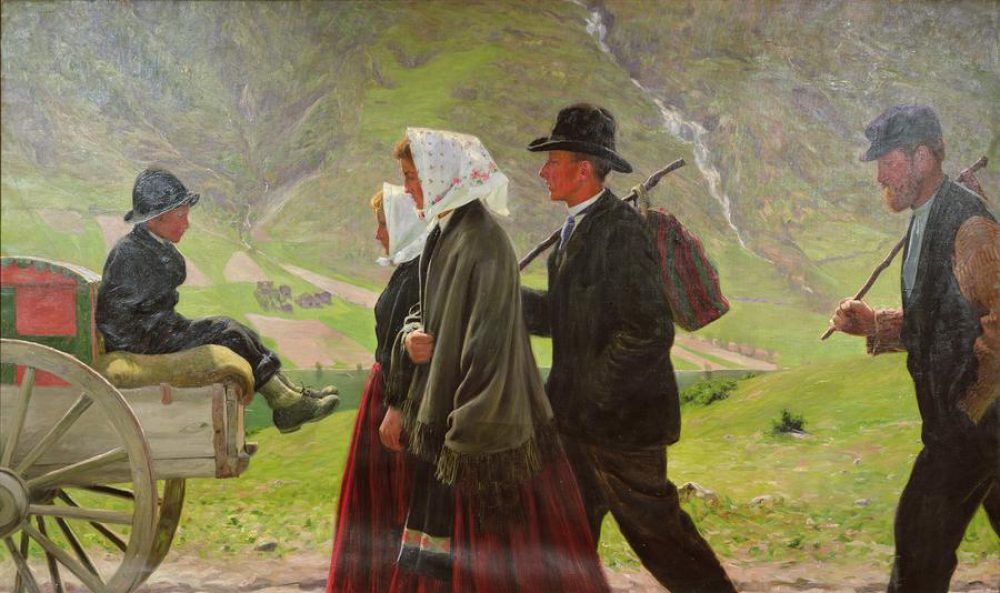Sean Murphy from the University of St Andrews spoke to the Diaspora Studies Graduate Workshop on Tuesday 1 November. Sean has a particular interest in the relationship between the Scots language and British imperialism. He is a graduate of the Universities of Glasgow and Oxford, and will shortly submit his PhD thesis at the University of St Andrews. We were delighted to welcome back Sean.
______________________
The new circumstances under which we are placed, call for new words, new phrases, and for the transfer of old words to new objects. An American dialect will therefore be formed.
Thomas Jefferson 16 August 1813
In the early decades of the 19th century, Thomas Jefferson argued that the growing United States of America, a nation of considerable size and cultural diversity, required a language to express all ideas. Would new words and new phrases “adulterate” the English language? Had the language of Burns “disfigured” the English language? Did the Athenians consider the Doric, the Ionian, the Aeolic, and other dialects, as disfiguring or as beautifying their language?” Jefferson thought the latter. Developing an analogy based on the richness of the Greek language, he argued that a variety of dialects enriched a language. The learned writers of the contemporary Edinburgh Review, who eschewed new words were, in his view, mistaken.
Sean Murphy used the words of Jefferson as both the introduction and cornerstone of his presentation. Jefferson had expressed the desire to “enlargen our  employment of the English language”. Moreover, a dignified American dialect was comparable to the Scots of Robert Burns whose writing had been readily available in the young United States of American from the 1790s. The poetry of Burns, Sean argued, fostered a sense of nostalgia, in emigrant Scots.
employment of the English language”. Moreover, a dignified American dialect was comparable to the Scots of Robert Burns whose writing had been readily available in the young United States of American from the 1790s. The poetry of Burns, Sean argued, fostered a sense of nostalgia, in emigrant Scots.
The work of two Scots/Irish poets provide an important insight into the social and diasporic world of Scots/Irish. David Bruce from Pennsylvania was a first generation emigrant who may have had roots in the north-east of Scotland, possibly in Caithness. A contemporary of Burns, his poetry expressed the post-colonial political concerns of a Scots/Irish diaspora. Bruce defended the Scottish Irish community which had been blamed for the so called Pennsylvania “whiskey rebellion of 1794”. Fiercely anti Jacobin, his work reflected an earlier age and showed a Scottish pride in rationality.
Robert Dinsmore of New Hampshire, was a third generation emigrant Scots/Ulsterman. If Bruce was a Scottish American, then it might be argued that Dinsmore was an American Scot. Sean’s readings of Dinsmore’s poetry tended to suggest that the vowel sounds of a third generation Scot might have developed, or, in any event, have been different from the Scots American of Bruce. Dinsmore looked to the past and made a connection between his ancient Irish ancestors and the tribes of the native American Indians. He was more of a rustic bard. Both poets – Bruce in more pastoral vein – were influenced by the poetry of the elder Alan Ramsay, of Gentle Shepherd fame, who was known for his use of the Scottish vernacular two generations before Robert Burns. Nostalgia, perhaps even exoticism, were the hallmarks of these poets. If the English had crafted Athenian, then the Scots excelled at the Doric.
A wide-ranging discussion considered the publication and marketing of the poems and the extent to which other diasporic groups may have been represented in contemporary periodicals.
_________________________
Please note:
The Graduate Workshop originally scheduled for Tuesday 15 November, has been cancelled.
Unfortunately, our speaker, Micheal Hopkirk of the University of Dundee, is indisposed. Michael was due to speak on “Highland Adventurers to the Caribbean: Estimating the Scale of Highland-Caribbean Economic Migration, 1780-1830”
Our next Graduate Workshop will now take place on Tuesday 29th November (further details below)
Alastair Learmont


 employment of the English language”. Moreover, a dignified American dialect was comparable to the Scots of Robert Burns whose writing had been readily available in the young United States of American from the 1790s. The poetry of Burns, Sean argued, fostered a sense of nostalgia, in emigrant Scots.
employment of the English language”. Moreover, a dignified American dialect was comparable to the Scots of Robert Burns whose writing had been readily available in the young United States of American from the 1790s. The poetry of Burns, Sean argued, fostered a sense of nostalgia, in emigrant Scots.